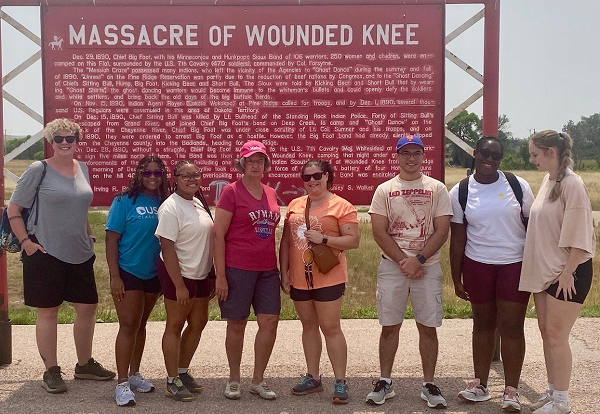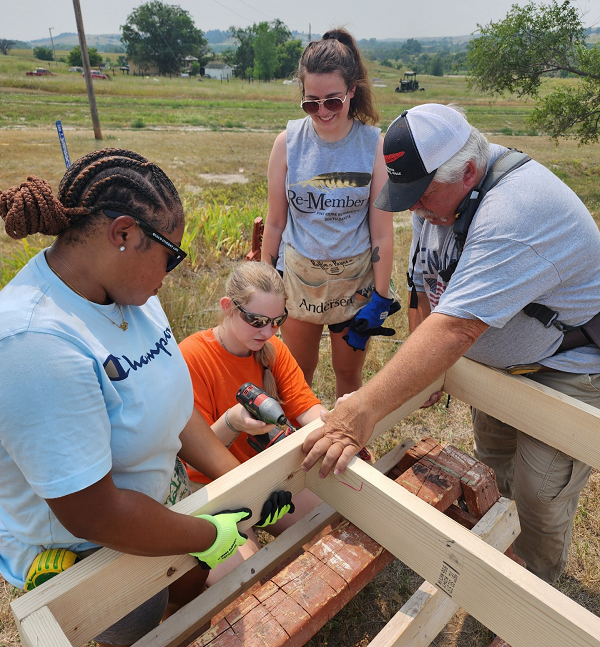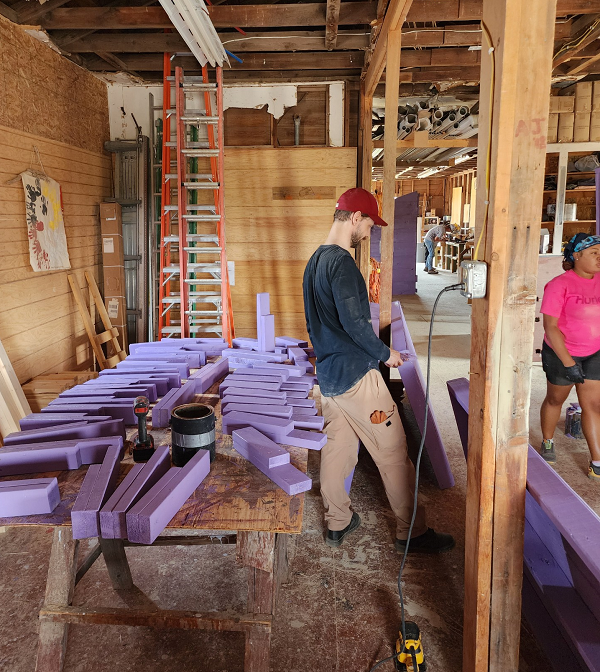Summer Service Learning at Pine Ridge Reservation

This summer, students and faculty from the Nursing and Public Health programs volunteered with the Oglala Lakota Nation on the Pine Ridge Reservation in South Dakota. Partnering with Re-Member, a non-profit dedicated to improving life on the reservation, the group engaged in service work and gained insights into Oglala Lakota culture and health challenges.
Students Peter Phillips, Kari Hill, Mackenzi McBride, Sierra Brown, Faith Jackson, and Makayla Smith, along with faculty Dr. Lynne Hutchinson and Kayla Berrios, explored the reservation’s significant locations, interacted with local artisans, and participated in cultural events like pow-wows. Their experiences highlighted the historical and political factors shaping the Indian Health system and the “culture clashes” between traditional practices and Western medicine.
The engagement emphasized understanding social determinants of health and public health, fostering critical thinking and cultural competency. Students identified key health issues on the Pine Ridge Reservation and evaluated local healthcare resources. Their findings were presented in research posters.

The Pine Ridge Reservation spans 2.1 million acres and is home to nearly 48,000 residents, facing severe poverty with an 89% unemployment rate. Economic hardship has led to food insecurity, inadequate housing, and critical health challenges. Until 2019, the reservation lacked an official grocery store, and many rely on convenience stores with unhealthy, processed foods. The harsh climate and poor soil hinder local agriculture, further limiting access to fresh produce.
Housing conditions are dire, with only 4,701 units for the entire population, leading to overcrowded homes lacking basic utilities like electricity, running water, and sufficient insulation. This exacerbates families' vulnerability to the region's harsh weather conditions.
Health crises are severe, with over 50% of adults suffering from diabetes and related complications. Pine Ridge Hospital, the sole medical facility, often leaves residents waiting until health issues become severe to be seen and treated.

Partner Organization to the students, Re-Member provides some relief to the community by building beds, installing mobile home skirtings, constructing ramps, and creating outhouses. They also cultivate and distribute fresh produce to combat food scarcity. Despite these efforts, the community’s needs far exceed available resources and ongoing support from both government and society is crucial to address these deep-rooted issues.
- USCB -
LM/8/26/2024